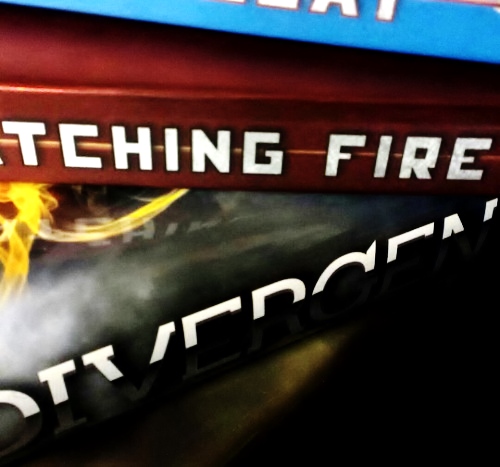Shortly after The Divergent Series: Allegiant hit theaters, searches for “YA dystopia” in Google News yielded a veritable barrage of articles declaring that the genre was finally on its way out—at least in cinema. From the Guardian to the LA Times to the Washington Post, speculation was rampant. But if we’re truly nearing a hard moratorium on YA dystopia in film, what does that mean for books?
In 2014, Lois Lowry, author of The Giver, stated that YA dystopia “was a trend, and it’s ending now.” Whether she was correct is up for debate. It stands to reason that what’s considered popular or passé in cinema might have some effect on other media. This may or may not be especially so for young adults, who tend to be more easily influenced and concerned with what is or isn’t “cool” (though it’s also possible that teens don’t really care about what adult reviewers have to say about their media). Either way, one has to wonder at this point whether the problem is really with the genre itself, or rather a blatant lack of originality. A Twitter account titled Dystopian YA Novel (@DystopianYA) beautifully illustrates this point with gems such as the following:
My sister Harpa played with her hair. In a lot of ways, she reminds me of a metaphor for my childhood innocence.
When People Are Categorized By A Single Defining Trait, One Girl Will Rise Above. Because Her Single Defining Trait Is Being Different.
Even with Anthem so close to me, dark hair and clear green eyes, I couldn’t stop picturing Ermias, with his light hair and clear green eyes
I try to comfort myself by thinking of what I know: My name is Valentine Neverwoods. I am from the Colony. Nothing else is what it seems.
Anthem is so complicated. Even though that seems to be his only personality trait.
This account is far from the only place on the web that pokes fun at the genre’s tropes—SNL’s parody trailer “The Group Hopper” makes the same overall point, and the previously cited LA Times article kicks off with this description: “In movie theaters this past weekend, a reluctant teen hero led a rebellion comprising an implausible clan of oppressed but likable young iconoclasts. Together they rose up around their chosen one to fight their government’s evil social engineering.” The Hunger Games? The Maze Runner? The Giver? Divergent? Maybe even the final Harry Potter installment? When a synopsis like this one can’t narrow things down to a couple possibilities, even when restricted to recent big-name works, there might be some creativity lacking in the genre.
Issues aside, there are many reasons YA dystopia might have become so popular in the first place. One Forbes article speculates that the widespread desire for such novels might partially stem from young adults’ distress over the state of the world—the result of the actions of previous generations, ripe with war, environmental disasters, massive societal problems, political corruption, and so on. Additionally, teens are expected to make long-reaching choices at a relatively young age; accomplish the same things going into adulthood as previous generations did (despite wildly different circumstances); and sit, test after high-stakes, standardized test without complaint. These dystopian novels take the seeds of these problems and anxieties and blow them up for the protagonists to cope with, navigate, and even change. Another article pointed out that the genre has also done well in allowing young women access to roles and traits traditionally only given to boys and men.
This is all to say that, at least in the world of books, maybe what’s dying isn’t dystopian YA fiction, but rather a set of tired tropes—and considering the reasons they often appeal to the target audience, maybe not even those. Series starters such as Red Rising, Red Queen, and An Ember in the Ashes have each met impressive success very recently despite claims to the genre’s doom, as I’m sure have many others. We’ll just have to wait to see where this goes.

